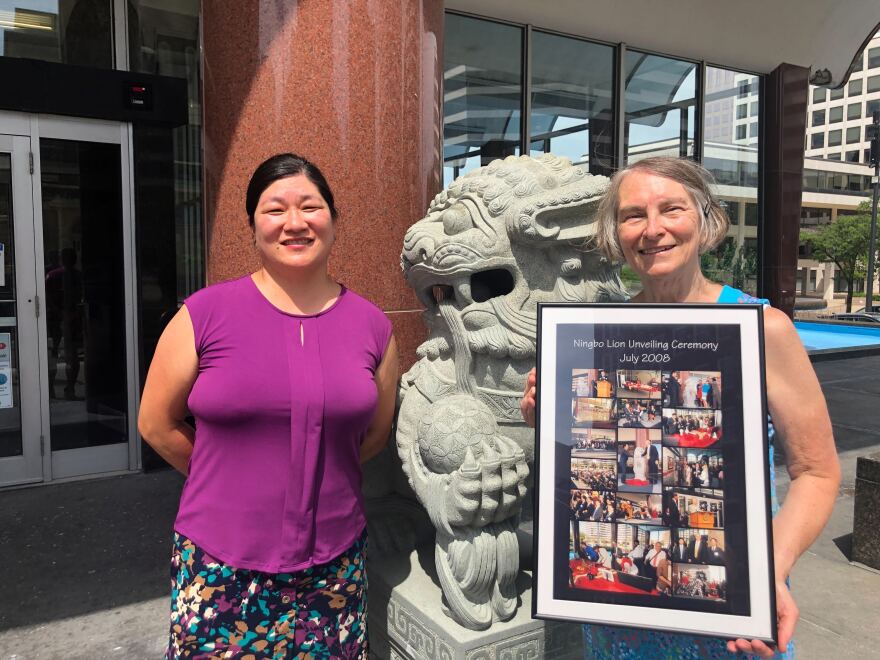
At one point or another, you may have walked into or passed by the Frank P. Zeidler Municipal Building located on Broadway and Kilbourn Avenue in downtown Milwaukee. Maybe you stopped by to pick up another copy of the birth certificate you lost or maybe it was to vote early.
Walking towards the main entrance, two lion statues greet you. An inscription underneath the lions says, “Friendship City Ningbo China-Milwaukee.”
Question asker Nicole Reid of Racine reached out to Bubbler Talk to learn the story behind the lions.

"I usually park in front of this building when I’m going to the theater, the Marcus Center, and so I’ve always noticed them," Reid says.
Martha Brown, a now-retired, former deputy commissioner of the Milwaukee Department of City Development, holds the answer. She served as Milwaukee’s liaison in managing the relationship between Ningbo and Milwaukee.
"The lions are here because they were a gift from the people of Ningbo to the people of Milwaukee after Milwaukee and Ningbo signed a friendly relationship agreement back in 2006," Brown explains.
And in return, the city of Milwaukee gifted the city of Ningbo a bronze eagle.

"The site was chosen because first, you could display the lions in the traditional side-by-side configuration on either side of the doorway. And also they’re very visible from Kilbourn Avenue and on Broadway. So they’d be much more visible and much more appropriate than on the historic city hall building," she explains.
And, Brown shares a unique detail about the statues — the stone balls inside the mouths of the lions can move.
As for the difference between a friendship city and a sister city, Brown explains that a sister city agreement goes through Sister Cities International. The city of Ningbo already established this type of relationship with another American city, and so they were only interested in a friendship agreement with Milwaukee.

The intention of a friendship agreement is to exchange goods, education and culture. And over the years, researchers from Ningbo and UW-Milwaukee have collaborated and the city Milwaukee has had a presence in numerous trade shows in Ningbo.
To give more insight on the architectural significance of the lions, Ying Wang, an associate professor of Asian Art and Bronze Age China at UW-Milwaukee shares her knowledge.
"So in general, what we are seeing is found around the 15th century or later — so Ming and Qing dynasties. And it's usually will be outside the door of either the palace or a wealthy family. So I think it means prosperity and happiness, so all those good meanings," she explains.
And, Wang points out that the pair of lions is in the same style as those in Beijing's Forbidden City and Tiananmen Square.
Since Ningbo is a southern city, Wang says it is surprising that they didn't choose something from their city to gift to Milwaukee. "Even though now, China is not a dynastic period, literally, but it’s still they were thinking something from Beijing probably the best they could offer," she says.

The friendship agreement between Ningbo and Milwaukee officially ended in 2014. And there isn’t any word if another agreement will be signed.
But, nonetheless, the lions continue to guard the front of the Zeidler building, a lasting reminder of the friendship agreement.
Have a question you'd like WUWM to answer? Submit your query below.
_







